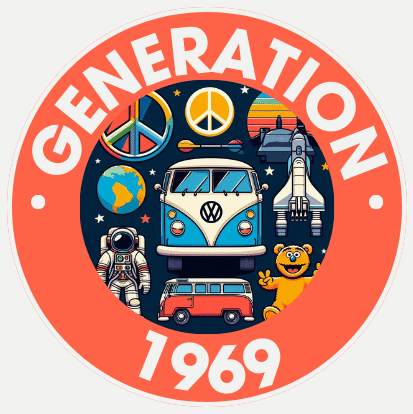In the annals of baseball history, few stories resonate as deeply as that of the 1969 Miracle Mets—a team that went from perennial basement-dwellers to World Series champions in just seven years. Their triumph was more than just a win on the field; it became a symbol of hope, perseverance, and the unpredictable magic of sports. This is the story of how a once-laughingstock franchise became a national sensation and forever changed the narrative of baseball.
⚾ The Birth of the Miracle Mets: From Cellar to Contenders
How the Mets rose from record-setting losses to a foundation for greatness.
The New York Mets were born in 1962, rising from the ashes of the city’s lost National League franchises—the Brooklyn Dodgers and New York Giants. Hopes were high, but the early years were rough. In their debut season, the Mets lost 120 games, a record for futility in the modern era. Through much of the 1960s, they remained at the bottom of the standings, becoming a symbol of lovable ineptitude rather than fierce competition.
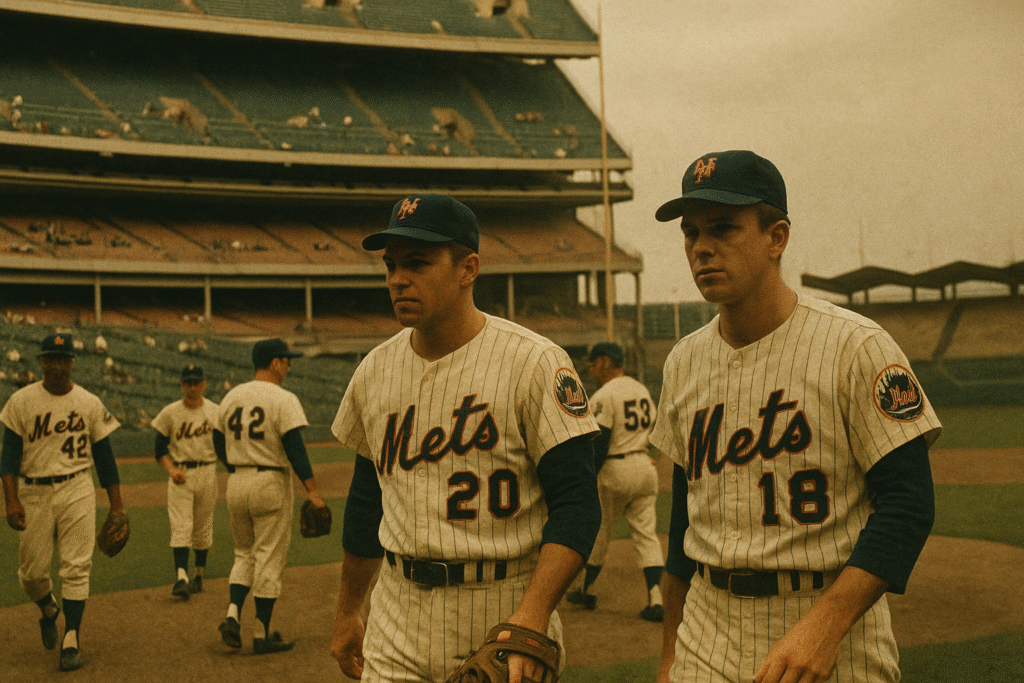
But things began to change in the latter half of the decade. Under the leadership of General Manager Johnny Murphy and Manager Gil Hodges, the Mets began laying the foundation for future success. Hodges, a former Brooklyn Dodger and no-nonsense leader, instilled discipline, confidence, and belief into a young team that had never known what winning felt like. The front office focused on building a team around strong pitching, smart defense, and clutch hitting—a strategy that would pay off in historic fashion.
🌟 Heroes of 1969: The Players Who Changed Everything
Meet the unforgettable roster that made baseball magic happen.
The 1969 Mets were powered by a mix of hungry young talent and seasoned veterans, each playing a crucial role in the team’s success. At the forefront was Tom Seaver, nicknamed “Tom Terrific,” a 24-year-old right-hander who would go on to win the Cy Young Award that year. Seaver’s precision, control, and leadership anchored the Mets’ rotation and gave the team a legitimate ace.
Alongside him was Jerry Koosman, a southpaw who emerged as a clutch performer, winning two games in the World Series. Other notable pitchers like Nolan Ryan, then a raw but electric talent, and Tug McGraw, the team’s emotional bullpen spark, gave the Mets one of the deepest staffs in baseball.
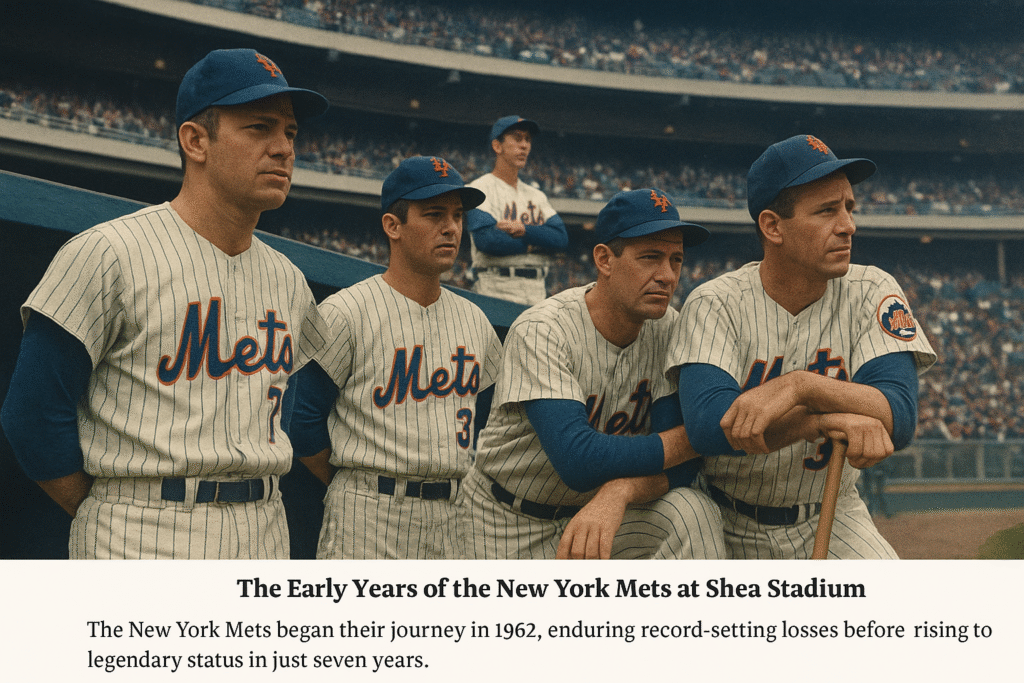
Offensively, Cleon Jones led the team with a .340 batting average, while Tommie Agee’s glove and bat were equally indispensable. Agee’s two remarkable catches in Game 3 of the World Series remain some of the greatest defensive plays in postseason history. Veterans like Ed Charles and Donn Clendenon brought leadership and experience, with Clendenon earning World Series MVP honors for his timely home runs.
Gil Hodges’ steady hand as manager cannot be overstated. He was a master motivator who knew how to mix personalities and styles, creating a clubhouse culture rooted in belief and teamwork. His impact transformed the Mets from a group of individuals into a unified force.
📈 The 1969 Season: Momentum, Magic, and a Miracle Finish
Reliving the clutch moments, the comeback, and the World Series victory.
Few could have predicted the Mets’ meteoric rise during the 1969 MLB season. They started slow but gained momentum mid-season, riding a wave of dominant pitching, timely hitting, and almost surreal confidence. On September 8, 1969, the Mets overtook the heavily favored Chicago Cubs in the National League East and never looked back, finishing with a 100-62 record.
One of the most iconic moments of the regular season came on July 9, 1969, during the All-Star Game, when Tom Seaver closed out the win for the National League. It was a signal that the Mets were no longer a punchline—they were contenders.
In the playoffs, they swept the Atlanta Braves in the National League Championship Series (NLCS), a stunning display of dominance. Then came the 1969 World Series, where the Mets faced the powerful Baltimore Orioles, a team loaded with future Hall of Famers.
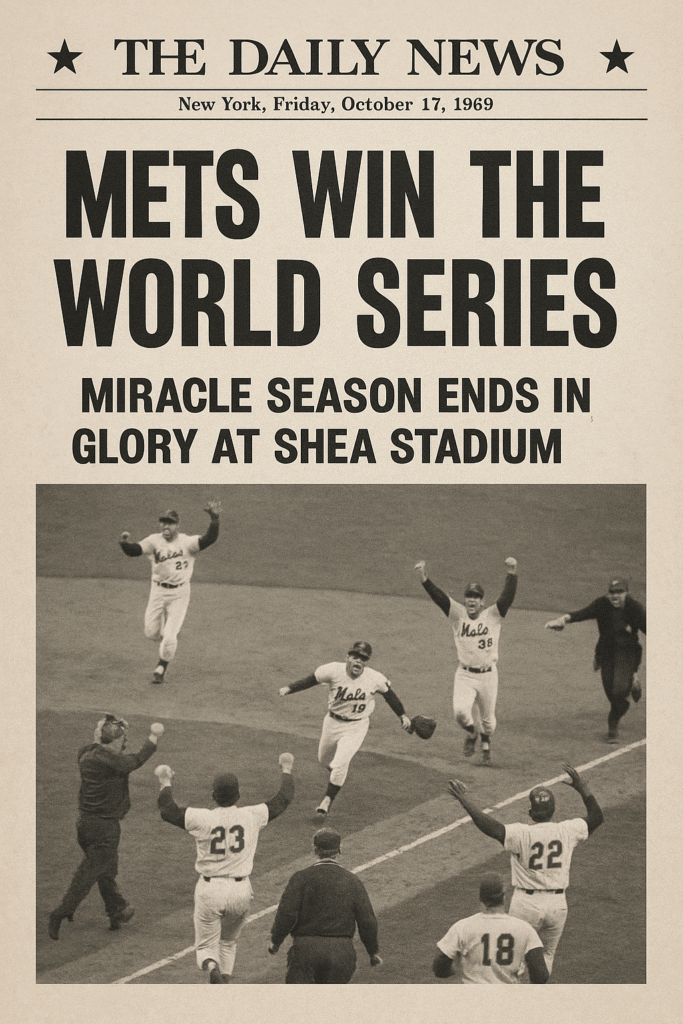
Almost no one gave the Mets a chance. But they shocked the baseball world by winning the series in five games, capped by Clendenon’s MVP performance and a legendary finish in front of a delirious crowd at Shea Stadium. It was a triumph not just for the team, but for underdogs everywhere.
🧢 Legacy of Legends: How the Miracle Mets Changed Baseballiracle Mets Changed Baseball Forever
The cultural and historical impact of one of the sport’s greatest upsets.
The Miracle Mets’ victory in 1969 had a profound and lasting impact on both the franchise and Major League Baseball. It gave legitimacy to a team once dismissed as a novelty and set a standard of excellence that would define the Mets’ identity for decades.
But the impact went beyond the diamond. The Mets became a cultural touchstone in a year of turbulence and transformation in America. With the backdrop of the Vietnam War, the civil rights movement, and the moon landing, the Mets offered a unifying, joyful distraction—a feel-good story in a time of uncertainty.
The legacy of the 1969 Mets endures in the hearts of fans and in the broader story of sports. They showed the world that anything is possible when preparation, talent, and belief come together. Their story is taught to young athletes as a lesson in perseverance, teamwork, and seizing the moment.
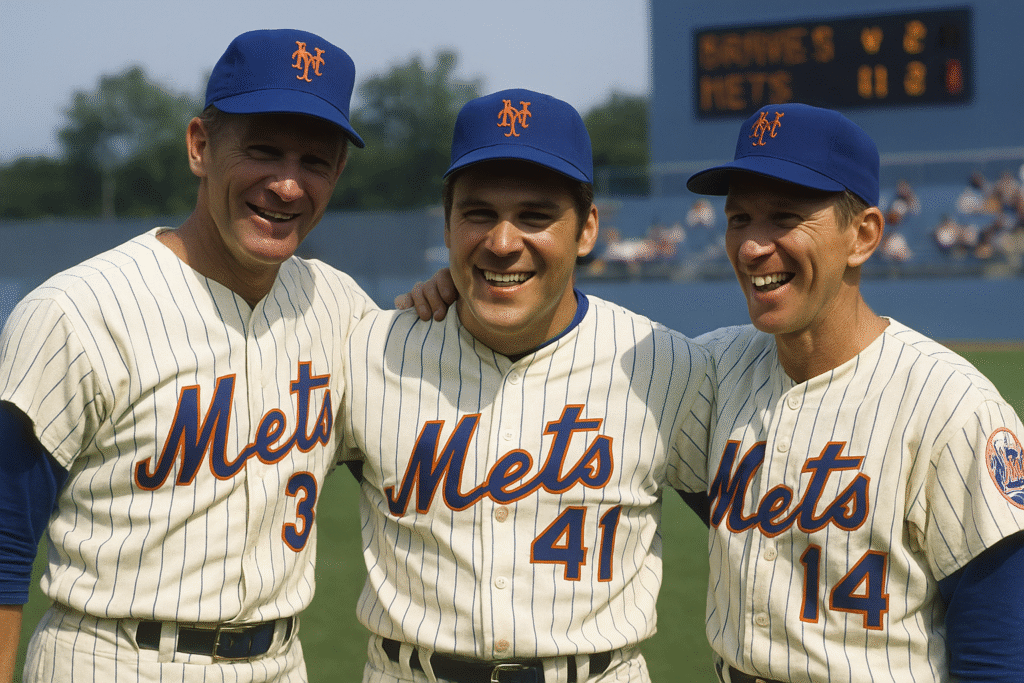
💭 Final Thoughts: The Miracle Lives Onracle Lives On
A reminder of why the 1969 Mets still inspire more than five decades later.
More than half a century later, the 1969 Mets are still remembered not just for what they achieved, but for how they made people feel. They didn’t just win—they inspired. From Shea Stadium to the streets of New York, and across the baseball world, the Miracle Mets of 1969 proved that the impossible can become possible—and that hope is always worth holding onto.
🧢 Were You There for the Miracle?
Whether you watched it live or heard the legends passed down,
what’s your favorite memory, moment, or takeaway from the 1969 Miracle Mets?
Drop a comment below—we’d love to hear how this team inspired you or changed how you see the game.
Let’s talk underdog glory, Shea Stadium magic, and why 1969 still matters. ⚾
